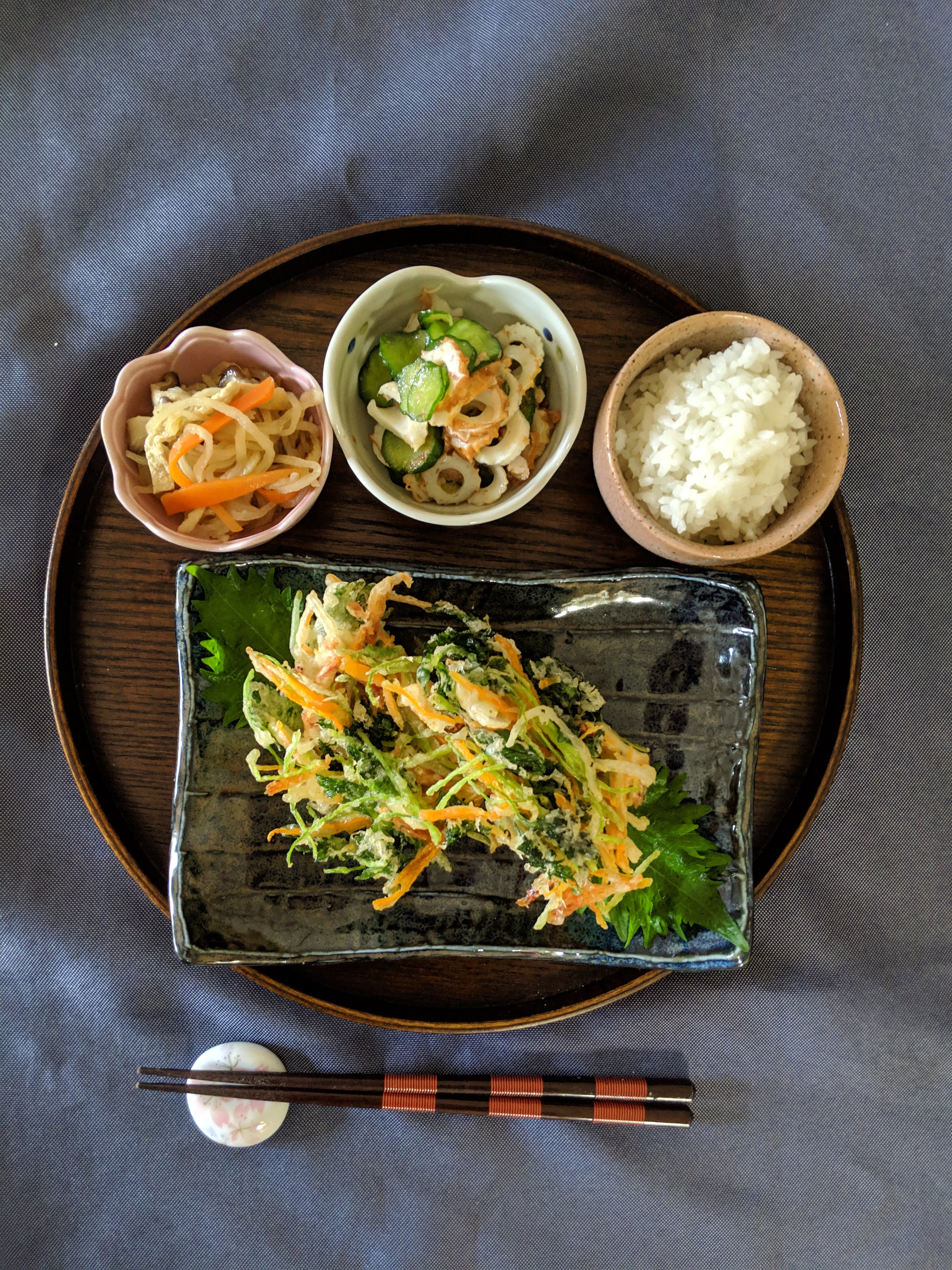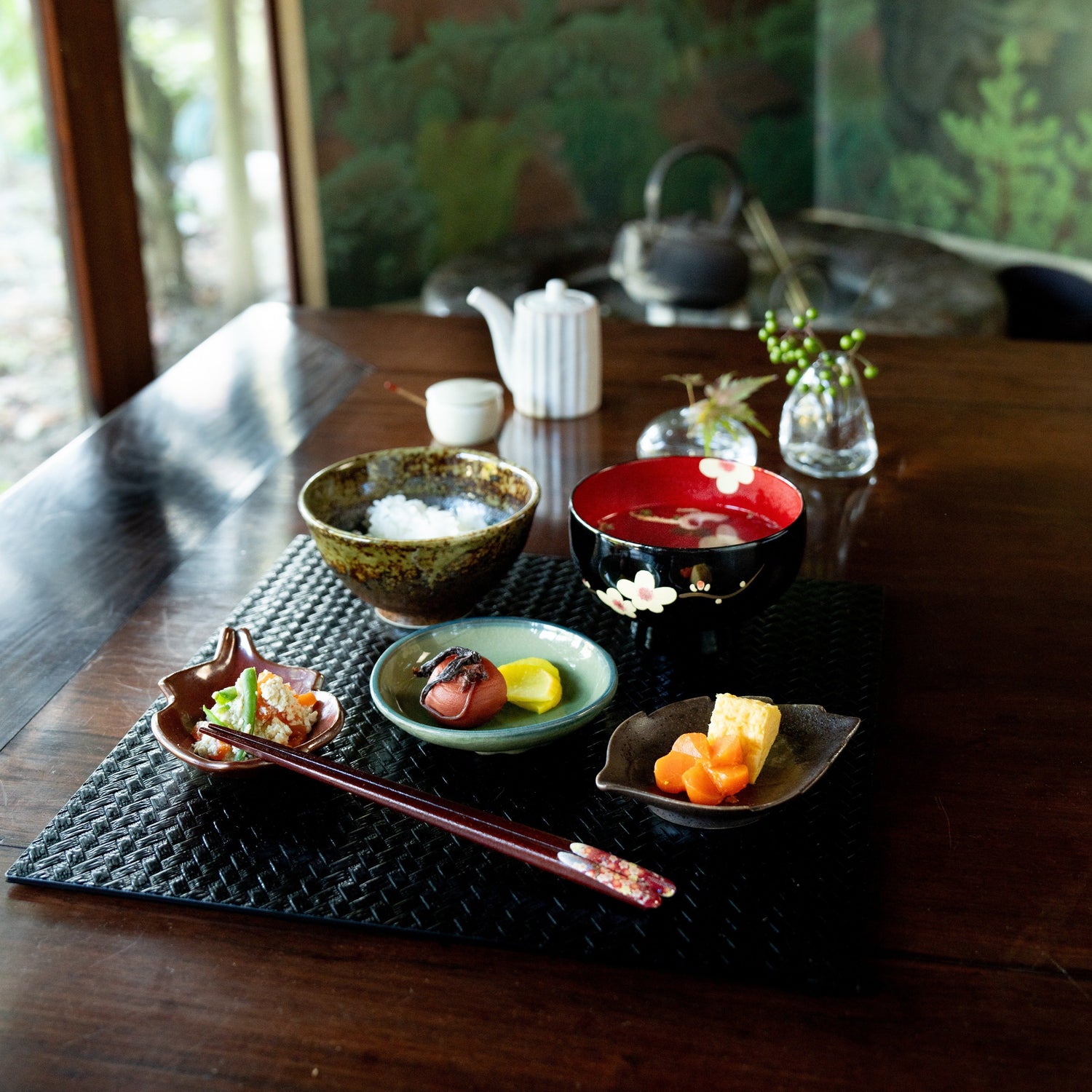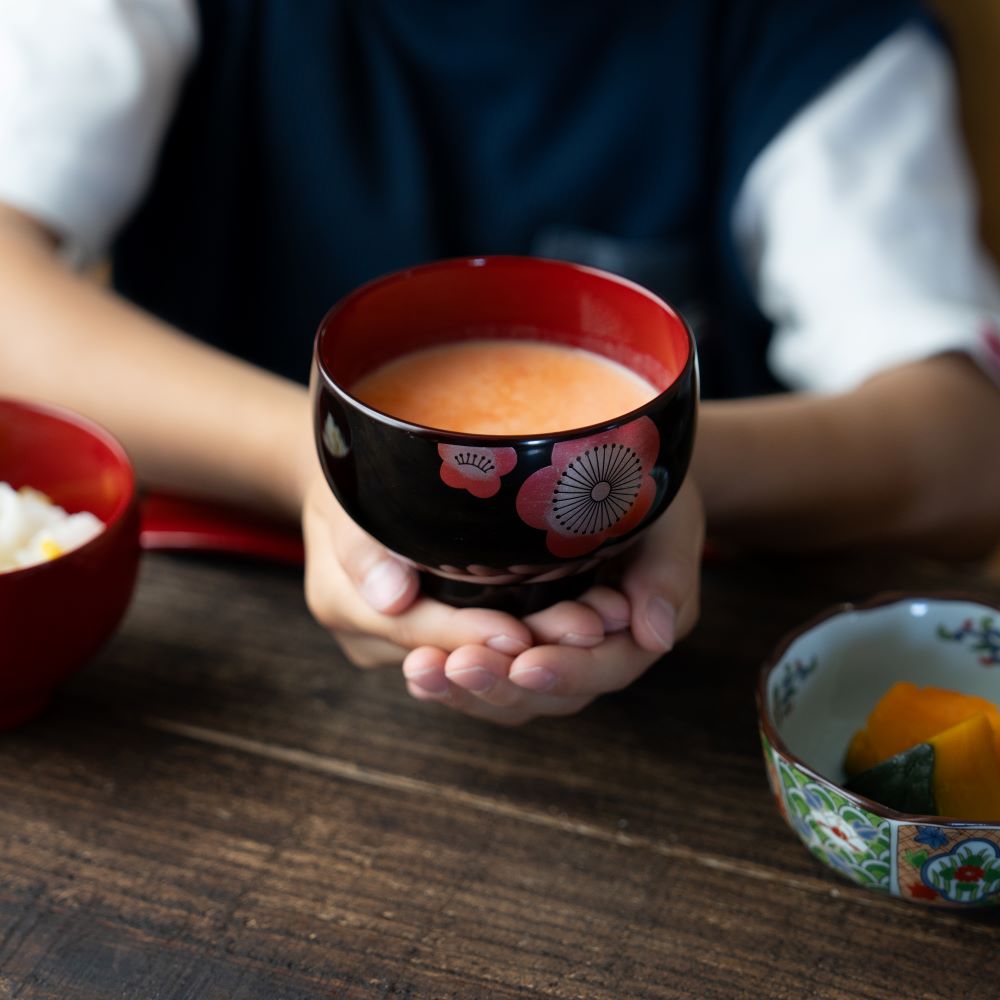Vegan and Halal-Friendly Ichiju-sansai: Adapting Tradition for Everyone
Ichiju-sansai’s flexible and simple structure makes it an excellent choice for various dietary needs, including vegan and halal diets. By substituting a few ingredients, you can create delicious meals that remain true to the tradition while accommodating different preferences. Here's how to make Ichiju-sansai accessible for everyone.
1. Vegan-Friendly Ingredients
Traditional Ichiju-sansai often includes fish or meat in the main dish, but it can easily be adapted to plant-based alternatives. Tofu, tempeh, and seitan are excellent substitutes for protein, while seaweed, mushrooms, and soy sauce can add the umami depth that’s typical in Japanese cuisine.
- Vegan Main Dish: Consider grilled or pan-fried tofu marinated in miso or teriyaki sauce.
- Vegan Soup: Replace fish-based dashi with kombu (kelp) or shiitake dashi for a rich, flavorful broth without animal products. Miso soup made with kombu dashi and seasonal vegetables is a classic choice.
- Sides: Simple vegetable dishes like spinach goma-ae (sesame spinach), pickled cucumber, or sautéed mushrooms add variety and texture to your meal.
2. Halal-Friendly Adaptations
Adapting Ichiju-sansai for halal diets is also straightforward with a few adjustments. The key is to avoid any ingredients that are not permissible under Islamic dietary laws, such as alcohol or non-halal meats.
- Halal Protein: Opt for halal-certified chicken, beef, or fish. Grilled or baked salmon with soy and ginger makes a perfect main dish.
- Soup: Just like in vegan adaptations, replace the fish-based dashi with a plant-based broth like kombu or shiitake. You can also use halal chicken broth as a base for your soups.
- Seasonings: Be mindful of seasonings like soy sauce or miso. While many brands are halal, check the labels to ensure they don’t contain alcohol.
3. Exploring New Ingredients
Part of the joy of adapting Ichiju-sansai to different diets is discovering new ingredients. Ingredients like tempeh, edamame, and different types of mushrooms can add variety and nutrition to your meal. Additionally, using a range of herbs and spices, such as ginger, garlic, or sesame oil, helps enhance the flavors while keeping the dishes halal and vegan-friendly.
4. Staying True to Tradition
Even with these adaptations, Ichiju-sansai’s core principles of balance, mindfulness, and simplicity remain intact. Focus on fresh, seasonal ingredients and maintaining a harmonious balance of flavors. Whether you’re preparing a vegan or halal version, the goal is to create a meal that nourishes both the body and mind.
5. Recipes to Try
- Vegan Miso Soup: Made with kombu dashi, tofu, wakame, and seasonal veggies.
- Halal Grilled Salmon: Marinated in soy, ginger, and garlic, served with a side of pickled cucumber.
- Spinach Goma-ae: A simple side dish of blanched spinach tossed in a sesame sauce, perfect for both vegan and halal diets.
By embracing these adaptations, you can enjoy the health benefits and cultural richness of Ichiju-sansai while respecting your dietary preferences. It’s all about finding balance and harmony, no matter what you eat.
In the next blog, we’ll look at how seasonal ingredients play a crucial role in Ichiju-sansai.





